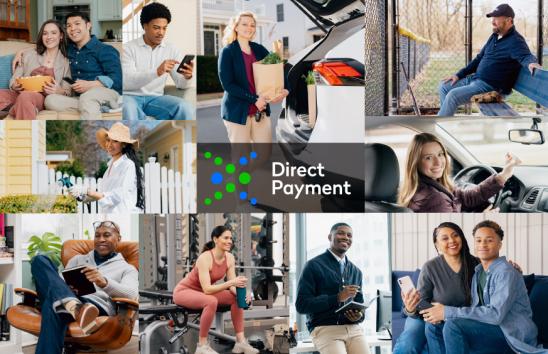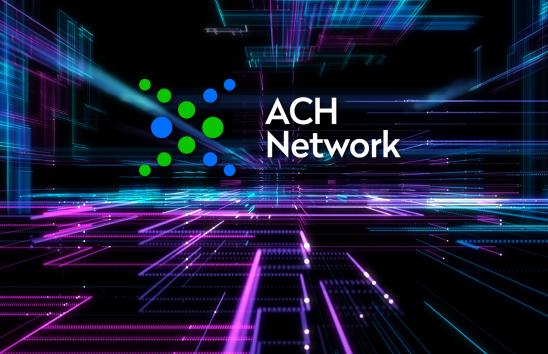Top Ways the ACH Network Can Help Consumers, Businesses and Government During the National Emergency
Author
During the current national emergency, the ACH Network is operating normally to process payments for consumers, businesses, and government agencies. There are many impacts to daily life and business operations due to the practice of social distancing and the closing of many workplaces. The use and adoption of ACH payments can provide some assistance to people, businesses and government agencies during this difficult time.
1. Getting Paid by Direct Deposit
Employees can get their salary and wage payments directly into their bank accounts, even when working remotely. They do not need to be present in person to collect a paper paycheck, or to make a trip to the bank to deposit a paycheck and wait for funds to clear.
2. Paying Bills From Home
Consumers can pay all kinds of bills, such as utilities, insurance, cable and internet, mortgages, car loans, and credit cards, from home using ACH payments. Most commonly, consumers pay bills directly at billing companies’ websites by authorizing ACH debits from their bank accounts. For those that are financially able, setting up automatic, recurring payments means that bills will never be paid late. Even monthly rent payments can benefit from being paid remotely and electronically, rather than in-person with a check.
3. Paying Suppliers and Vendors Remotely
Many businesses have lost the ability to make payments by paper check, such as to pay suppliers and vendors. These checks typically require signatures, which cannot be easily accomplished when employees are working remotely. Paying suppliers and vendors by ACH typically can be accomplished by accounting or accounts payable staff when working remotely.
4. Receiving Ongoing Donations
Nonprofits and religious organizations rely on donations for their finances, and donations can be disrupted when in-person services and fundraising events cannot be held. Nonprofits and religious organizations can ask donors to contribute remotely by ACH from their bank accounts on a recurring, monthly basis. This will help prevent the interruption of donations during emergencies such as the pandemic.
5. Government Assistance Payments by Direct Deposit
Congress passed and the president signed emergency legislation that includes direct assistance payments to Americans. The U.S. Treasury likely will use Direct Deposit to the maximum extent possible to distribute these payments. Just as with other uses of Direct Deposit, recipients won’t have to wait for a check to arrive in the mail, and then make a deposit and wait for funds to clear. The federal government already uses Direct Deposit extensively, as 99% of federal salary payments, 99% of Social Security benefits, and 80% of tax refunds are paid by Direct Deposit.
6. Unemployment Insurance by Direct Deposit
For people who are applying for and collecting unemployment insurance, receiving benefits by Direct Deposit offers the same advantages over paper checks as for payroll payments. Recipients will have faster access to funds without having to deposit a paper check.
7. Tax Refunds and Other Refunds
The IRS has delayed the 2019 tax filing date to July 15, 2020. Taxpayers that are due a refund, though, do not need to delay. The quickest way to get their refunds is still through electronic filing and choosing Direct Deposit. Other disruptions have resulted in the need for refund payments. For example, many colleges and universities are refunding balances for unused portions of housing and dining plans. Schools can make these payments by Direct Deposit to avoid the need for employees to be in the office to process and sign paper checks, and to ensure that recipients receive money directly in their accounts.
8. Paying Personal Service Providers
Many of us hire small businesses and individuals to perform personal services—things like lawncare and landscaping; babysitting; housecleaning; and pet care. Some of these types of services are being disrupted due to social distancing requirements. More tools are becoming available to pay these service providers electronically, including by ACH, instead of by cash and check. Many people that are financially able are continuing to pay these service providers during this disruption, and electronic payment tools make this easier.
9. Medical Claim Payments
Hospitals, clinics, and doctors’ offices will likely experience a higher volume of medical insurance claims and payments due to the greater volume of medical visits and treatments. These medical providers can receive claim payments by the Healthcare EFT (Electronic Funds Transfer) that uses the ACH. As a national standard transaction under HIPAA, medical providers can require claim payments by ACH instead of receiving paper checks.
10. Put Savings on Autopilot
Financial professionals recommend that people have 3-6 months of savings to carry through an emergency. One of the easiest ways to do this is to put savings on autopilot by using Split Deposit. This sends a portion of a person’s pay to a savings account using Direct Deposit. Alternatively, a person could set up regular transfers from their primary account to a savings account, so that savings happen automatically.



